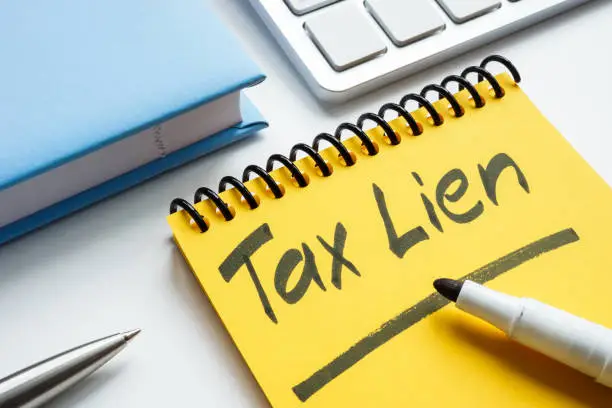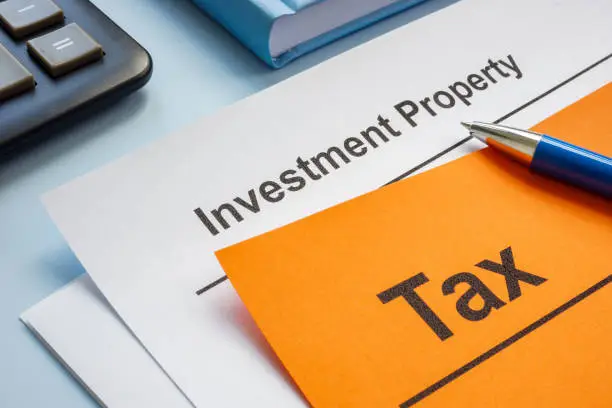
What is tax lien investing? It’s a real estate investment strategy where individuals buy tax lien certificates from local governments. When a property owner fails to pay their property taxes, the municipality places a lien on the property and auctions that lien to investors. These investors then have the right to collect the unpaid taxes plus interest from the property owner.
Tax lien investing appeals to those seeking alternative ways to invest in real estate without owning physical property immediately. It’s a niche but potentially profitable method that requires research, patience, and an understanding of how property tax systems work. Let’s explore how this strategy functions and how you can get started.
How Tax Lien Investing Works
When homeowners don’t pay their property taxes, local governments need to recover that revenue to fund schools, police, and other public services. To do this, they issue tax lien certificates for the amount owed and sell them at public auctions to investors. As an investor, you essentially pay off the tax debt on behalf of the homeowner in exchange for the legal right to collect that debt, plus interest and fees.
Here’s how the process unfolds:
The local government identifies delinquent tax properties.
It issues tax lien certificates and holds an auction where investors bid to buy them.
The winning bidder pays the tax debt to the government and receives a certificate.
The property owner must repay the investor within a redemption period, usually one to three years, including interest.
If the owner fails to pay, the investor may initiate legal proceedings to take ownership of the property.
This investment isn’t about quick returns. It often involves holding a certificate for months or even years, depending on the state’s laws. However, the interest rates can be highly attractive—ranging from 5% to over 30% in some jurisdictions.

Pros and Cons of Tax Lien Investing
Like all investment strategies, tax lien investing has its advantages and drawbacks.
Pros:
High Returns: Tax liens often come with interest rates set by law that can be significantly higher than other investments.
Low Entry Cost: Many tax lien certificates can be purchased for just a few hundred dollars, making it accessible for beginners.
Secured Investment: The investment is backed by real estate, giving it a level of security.
Potential to Acquire Property: If the lien isn’t repaid, you could end up owning the property for the price of the unpaid taxes.
Cons:
Long Wait Times: The redemption period can take years, during which your money is tied up.
Property Risks: Some liens are attached to undesirable or distressed properties that aren’t worth owning.
Complex Legal Process: Foreclosure laws vary by state and can be complicated.
Intense Competition: In popular areas, bidding wars can drive down returns.
Understanding both sides of the coin is essential before diving into tax lien investing.

Tax Lien vs. Tax Deed: What’s the Difference?
It’s important to distinguish between tax lien investing and tax deed investing. In tax lien investing, you’re buying the right to collect unpaid taxes plus interest. In tax deed investing, you’re actually buying the property outright because the local government has foreclosed on the delinquent owner.
In tax lien investing, the goal is usually to collect interest income, not to acquire the property. In tax deed investing, your return depends on the value of the property you’ve purchased, which can be risky if you don’t inspect or research the property ahead of time.
Each strategy comes with its own risks and rewards, and which one is better for you depends on your investment goals and risk tolerance.
Step-by-Step: How to Start Investing in Tax Liens
Starting in tax lien investing requires preparation, research, and a methodical approach. Here’s a basic step-by-step guide:
1. Learn the Laws in Your State
Each state has different rules regarding tax lien sales, interest rates, redemption periods, and foreclosure processes. Start by researching these regulations thoroughly.
2. Choose a Market
Not all counties or states hold tax lien sales. Identify where they do, and look for places with manageable entry costs and transparent auction procedures.
3. Register for Auctions
Most counties require you to register before participating in tax lien auctions. Some are in-person, while others are online through platforms like Bid4Assets or RealAuction.
4. Do Your Homework
Always research the property tied to the tax lien. Check its location, market value, condition, zoning status, and any other liens or encumbrances.
5. Attend the Auction and Bid Carefully
Don’t get caught in bidding wars. Know your maximum investment amount and stick to it. In some auctions, investors bid down the interest rate, which means the winner gets the lowest rate they’re willing to accept.
6. Track Your Certificates
Once you win a lien, track the certificate and the property. Note redemption periods and legal deadlines for foreclosure rights if necessary.
7. Receive Payment or Foreclose
If the property owner pays their taxes, you collect the principal plus interest. If not, and depending on the state, you may proceed to foreclose and possibly acquire the property.

Is Tax Lien Investing Right for You?
Tax lien investing isn’t for everyone. It’s a great fit for people who are patient, enjoy research, and want to diversify their real estate investments without the headaches of managing a property.
If you like the idea of earning passive income backed by real estate, tax lien investing might be a smart addition to your portfolio. However, if you’re looking for fast cash, or don’t have time to research properties and local laws, this strategy might not be the best fit.
Conclusion
So, what is tax lien investing? It’s a unique, lower-cost way to get involved in real estate without immediately buying property. With proper research and strategy, investors can earn attractive returns and even acquire real estate at a deep discount. But it’s not without risks—understanding local laws and conducting due diligence is essential.
If you’re interested in real estate investing and want more guidance, Dwanderful is an excellent resource. Founded by seasoned investor and podcast host Dwan Bent-Twyford, Dwanderful offers tools and strategies to help you succeed in real estate—whether you’re brand new or looking to scale your business.
You can start by downloading her free book “Real Estate Lingo,” a beginner-friendly guide that breaks down complex terms into easy-to-understand language. For those ready to dive deeper, her paid book, “Five Pillars of Real Estate Investing,” offers advanced insights into building a profitable portfolio.
And don’t miss the fun quiz game on the Dwanderful website. In under a minute, discover how you could generate six figures in the next six months—whether you’re buying your first property or your next. It’s a quick, insightful way to see how tax lien investing and other strategies could align with your financial goals. Contact us now!
Frequently Asked Questions
Can You Lose Money in Tax Lien Investing?
Yes, especially if you fail to research the property. Liens attached to unusable or worthless land, or those in areas with poor foreclosure laws, may result in a loss.
How Long Does It Take to See Returns from a Tax Lien Investment?
Returns typically come during the redemption period, which can range from six months to three years. Foreclosure, if needed, can add additional time.
Do You Need a Lot of Money to Start Tax Lien Investing?
No. Many tax liens are available for under $1,000, making it one of the more affordable ways to enter real estate investing.


